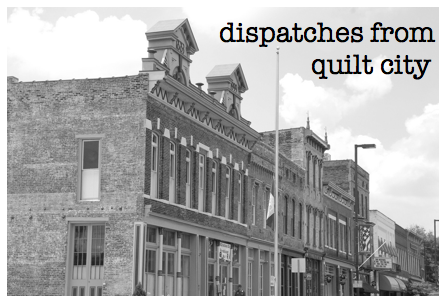Too much
So, I've written several times about the health benefits of vegetarianism and how those factors have influenced my decision to stop eating meat. What I haven't talked about is the role of animal welfare in that decision.
However, since reading The Omnivore's Dilemma, I've thought about that more and more. Specifically, I read about a practice involving the industrial farming of pigs that embodies why I do not eat meat.
"Simply put, there are no pigtails in industrial hog production. Farmers "dock," or snip off, the tails at birth, a practice that makes a certain twisted sense if you follow the logic of industrial efficiency on a hog farm. Piglets in these CAFOs are weaned from their mothers ten days after birth (compared with thirteen weeks in nature) because they gain weight faster on their drug-fortified feed than on sow's milk. But this premature weaning leaves the pigs with a lifelong craving to suck and chew, a need they gratify in confinement by biting the tail of the animal in front of them. A normal pig would fight off his molester, but a demoralized pig has stopped caring. "Learned helplessness" is the psychological term, and it's not uncommon in CAFOs, where tens of thousands of hogs spend their entire lives ignorant of earth or straw or sunshine, crowded together beneath a metal roof standing on metal slats suspended over a septic tank. It's not surprising that an animal as intelligent as a pig would et depressed under these circumstances, and a depressed pig will allow his tail to be chewed on to the point of infection. Since treating sick pigs is not economically efficient, these underperforming production units are typically clubbed to death on the spot.
Tail docking is the USDA's recommended solution to the porcine "vice" of tail chewing. Using a pair of pliers and no anesthetic, most-but not quite all-of the tail is snipped off. Why leave the little stump? Because the whole point of the exercise is not to remove the object of tail biting so much as to render it even more sensitive. Now a bite to the tail is so painful that even the most demoralized pig will struggle to resist it."
I feel, on some level, it is disturbing/wrong/unhealthy to consume something that went through that much suffering to get to your plate.
Now, don't get me wrong. I'm not joining PETA anytime soon. I specifically used the term animal welfare and not animal rights above because I do not really believe animals have an inherent "right" to be treated humanely. I do think it is our responsibility to treat them humanely the second we decide to remove them from the wild and take them under our care - for pets, for food, for labor, for entertainment, whatever.
In addition, I do not believe it is inherently unethical to eat meat. However, Pollan makes a point of stating that someone who eats meat should at least once take some direct responsibility for the killing of the animal. And I know that I am unwilling to do that. I know I could never kill a cow, pig, or even a chicken. Therefore, I do not feel like it would be responsible to eat the meat itself.

4 comments:
I've heard this is a great book.
I know this isn't part of the food issue, but what do you think about clothing - leather and wool (which doesn't cause the sheep its life, but could certainly affect its quality of life depending on how the farm is run), etc.?
A friend of mine this week was telling me that she thinks its terrible to kill animals so she 'hardly' eats any meat (whatever that means) and went on to tell me about her favorite Christmas present, which was a purse lined in real mink fur. Hm.
I would just like to point out that I could kill a chicken...mostly because one chased me in my grandparents yard when I was little and I am terrified of them. I know I shouldn't judge the whole but one nutbag chicken, but seriously. Is the book truly worth reading if I'm not 100% sure I could be a vegetarian..
Oh no way! He's a meat-eater himself so he's not necessarily promoting vegetarianism AKA YOU SHOULD TOTALLY READ IT! :)
As far as clothing, I'd be lying if I applied the same diligence to my clothing buying as I did to my food (mainly b/c you eat way more than you shop...well some of us) BUT I certainly don't wear fur and I buy all my shoes Target/Payless so they're all imitation leather ;) I do wonder what is more sustainable to environment: leather/cotton or plastice/synthetics.
Yeah, I heard a story on NPR recently about the difficulty of balancing shopping organic, supporting local business/farmers, valuing sustainability, maintaining environmental consciousness, etc. etc. It can be really overwhelming trying to figure out what the 'right' thing is - and then doing it. ;-)
Post a Comment